Keiichiro Shibuya is a rare musician who continues to change and weave together new sounds as he traverses different fields. In the series “Massive Life Flow”, we follow him closely and explore the trajectory of his thinking and his vision for the future.
In the ninth installment, we look back on Shibuya’s Android Opera®︎, presented last November at the National Art Center, Tokyo, and its possibilities and perspectives along with Kyoji Takahashi’s photographs.
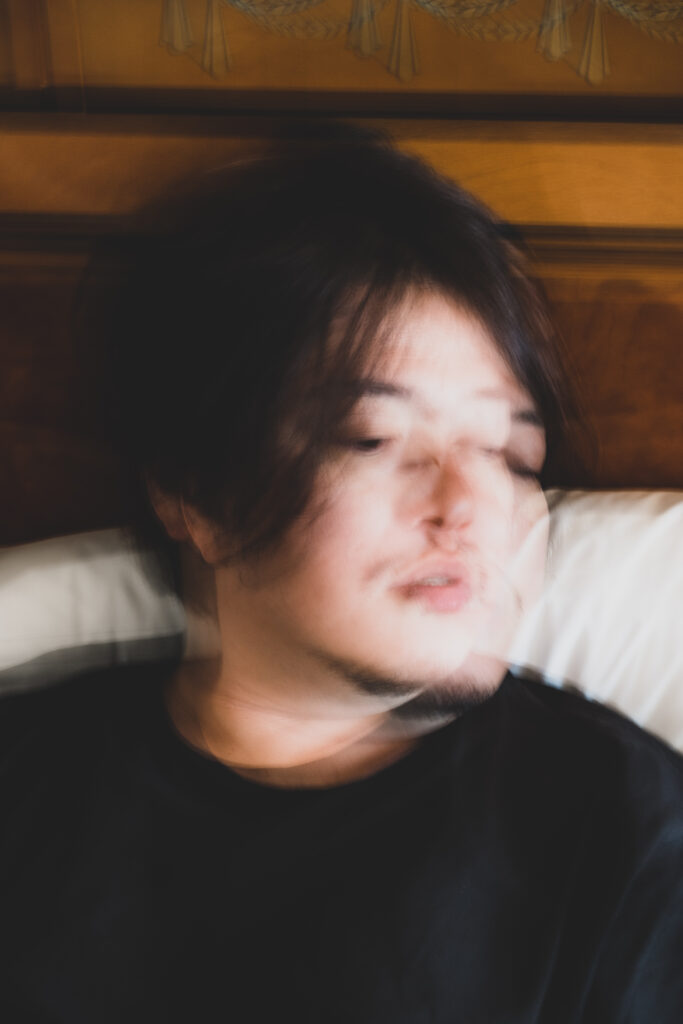
Keiichiro Shibuya
Keiichiro Shibuya is a musician who was born in 1973 in Tokyo. He graduated from the Tokyo University of the Arts with a B.A. in Music Composition and founded the music label ATAK in 2002. Notable works include a Vocaloid opera comprised of no people called The End (2012) and the Android Opera®︎ Scary Beauty (2018). In September 2020, he created the soundtrack for the film Midnight Swan and won the Music Award at both the Mainichi Film Awards and the Japan Movie Critics Award. In August 2021, Shibuya’s opera Super Angels had its world premiere at New National Theater Tokyo. In March 2022, he showed his new Android Opera®︎, MIRROR, a collaboration between an android, Buddhist music, shomyo, and an orchestra from the UAE, at Expo 2020 Dubai. In April, he created the soundtrack for xxxHOLiC, a film by Mika Ninagawa. Further, he established the Android and Music Science Laboratory (AMSL), a science laboratory of androids and music, at the Osaka University of Arts. He explores the boundary between humans and technology and life and death.
ATAK:http://atak.jp
Twitter:@keiichiroshibuy
Instagram:@keiichiroshibuy
“FORWARDISM” – Facing the future and continuing to take on challenges
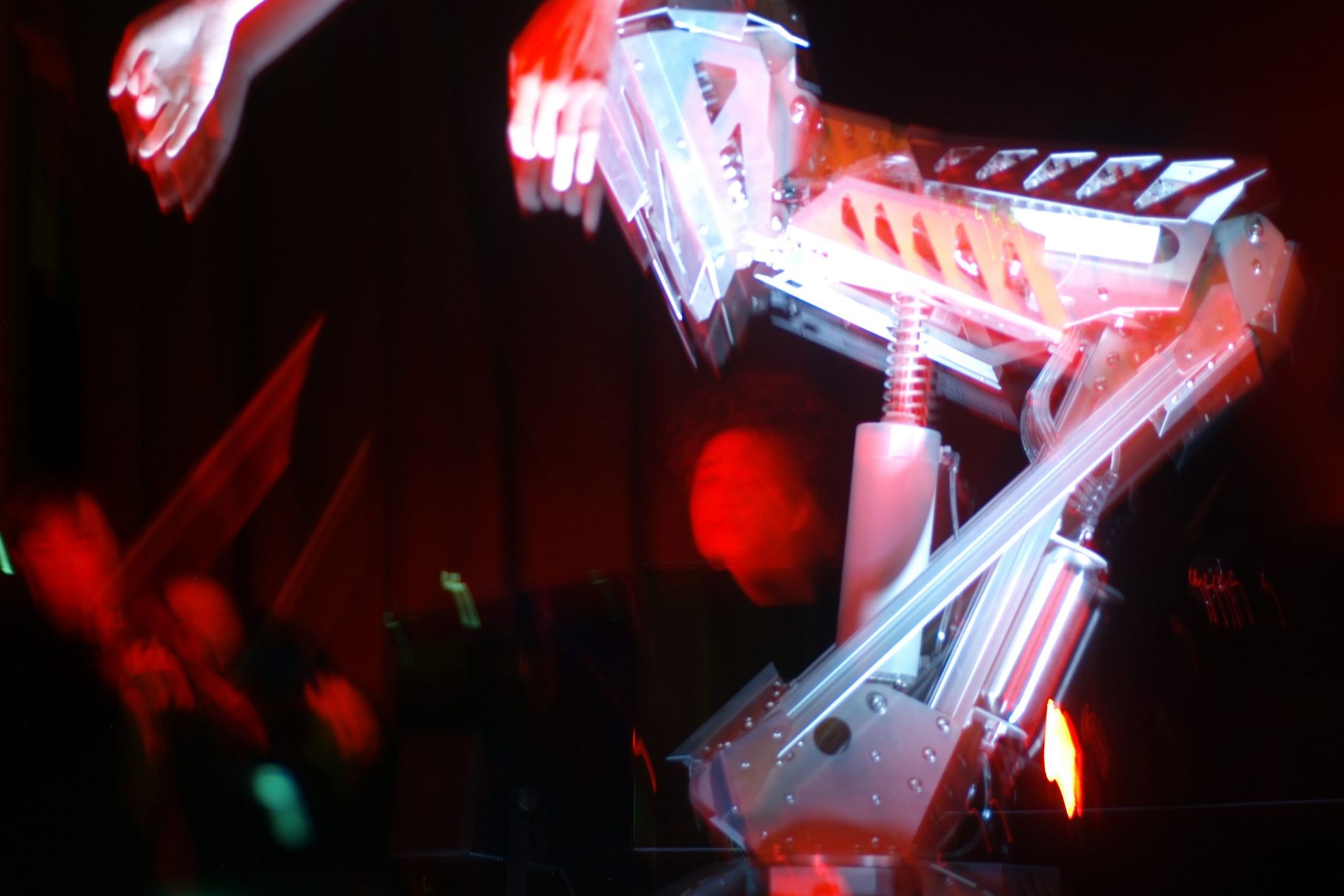
Photography Kyoji Takahashi
On November 15th of last year, I had the opportunity to see Shibuya’s Android Opera®︎ with an orchestra for the first time in Japan since “Super Angels” in 2021. It was being shown at the National Art Center, Tokyo. Shibuya’s Android Opera®︎ was presented as the conclusion of the “FORWARDISM BMW THE SEVEN Art Museum”, organized by BMW.
“FORWARDISM BMW THE SEVEN Art Museum” was an event held for the Japan premiere of the BMW flagship sedan “THE i7” and its flagship SUB “THE X7”. The word “FORWARDISM” included in the title, represents the BMW philosophy that promises to “face the future and continue to take on challenges”. The methodology for putting this “FORWARDISM” into practice is the “fusion of art and technology”, and both THE i7 and THE X7 are fully infused with the aesthetics and latest technology that BMW has cultivated over its long car-making career.
An attitude that works towards the future and continues to take on challenges, and the fusion of art and technology –. These may be the key words to understanding musician Keiichiro Shibuya, who studied classical composition at the Tokyo University of the Arts, but who has not limited himself to that field. Instead, he has created cutting-edge electronic sound works spun by eccentric processing/editing using computers, resonating with artists around Mego in Austria and 12k in New York, and who released his first album on his own label, ATAK. In a sense, it seems inevitable that Shibuya’s main project, the Android Opera®︎, would be presented at this event.
After the greeting by Christian Wiedmann, President and Representative Director of BMW Japan (as of November 2022/current President and Representative Director is Masatoshi Hasegawa) and the presentation by Katsunosuke Endo, Director of BMW Japan, the venue shifted into chit chat mode. DJ EMMA began playing, spinning masterful selections and mixes that painted the space into brilliant colors with its groovy house music.
Introducing an “outsider” – an Android – into traditional opera
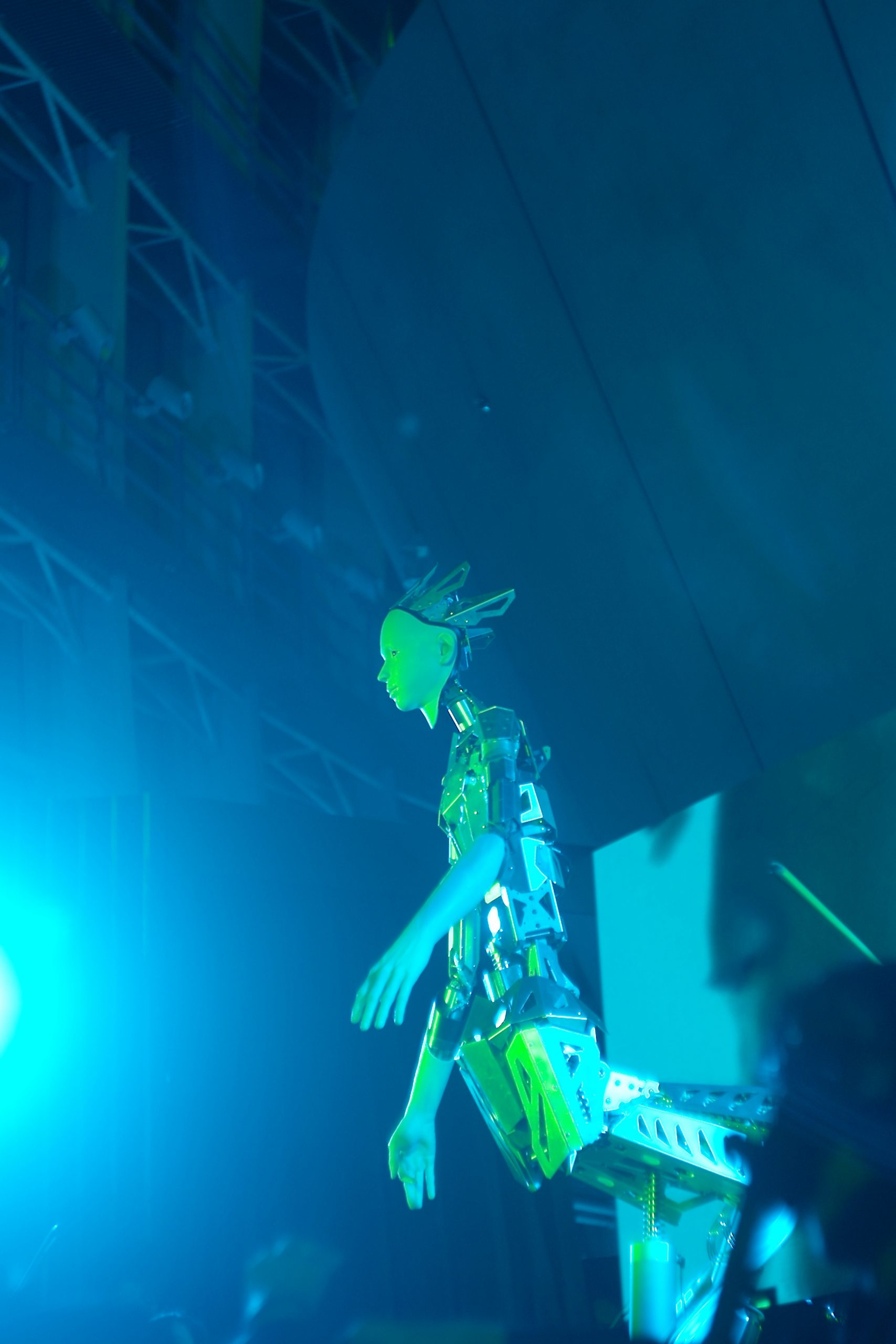
After a while, the sounds that fill the venue shift into electronic drones. We look towards the stage in front of us, and we see the latest model of the Android Alter series, Alter 4. Already set up and swaying leisurely, Alter begins reading a text in English.
As the atmosphere in the hall suddenly takes a turn, Shibuya and the orchestra’s forty musicians appear on stage and take their places.
As the orchestra finishes tuning, a powerful sequence of beats echo through the venue, accompanied by vivid lighting, signaling the start of the Android Opera®︎. While the audience stares at the stage with bated breath, listening intently for the next sound, Shibuya plays the piano, while still standing. Introspective, melancholic, and richly nuanced, the beautiful sounds and phrases indicate that the next song about to begin is “Scary Beauty”. The orchestra starts to play with Shibuya’s piano, the string and wind instruments’ phrases being delicately and dynamically woven together. After a break-like development in which the parts playing the mid and low registers stop playing, Alter, who had been swaying its body in time to the sound, begins to sing, accompanied by all the sounds of the orchestra.
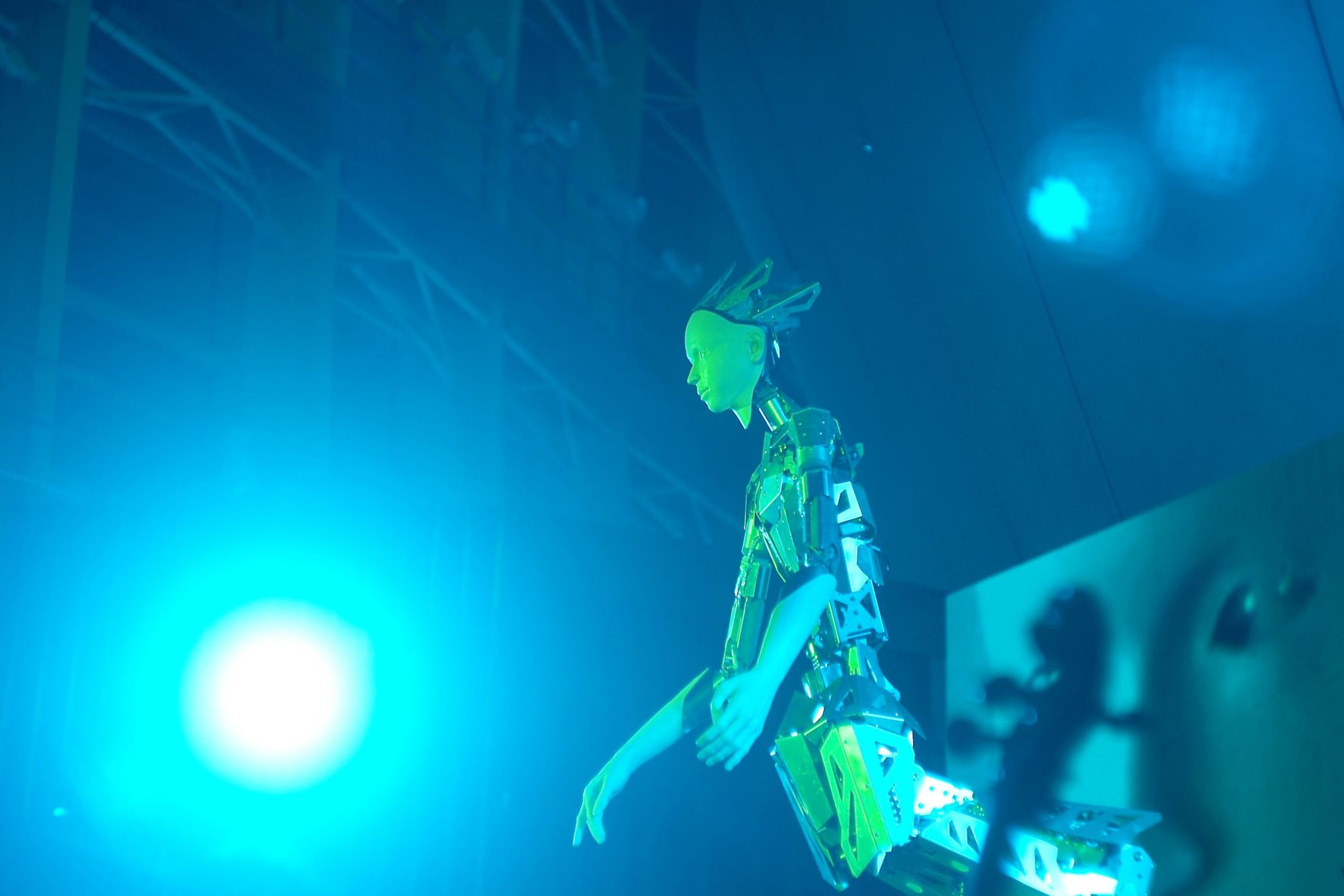
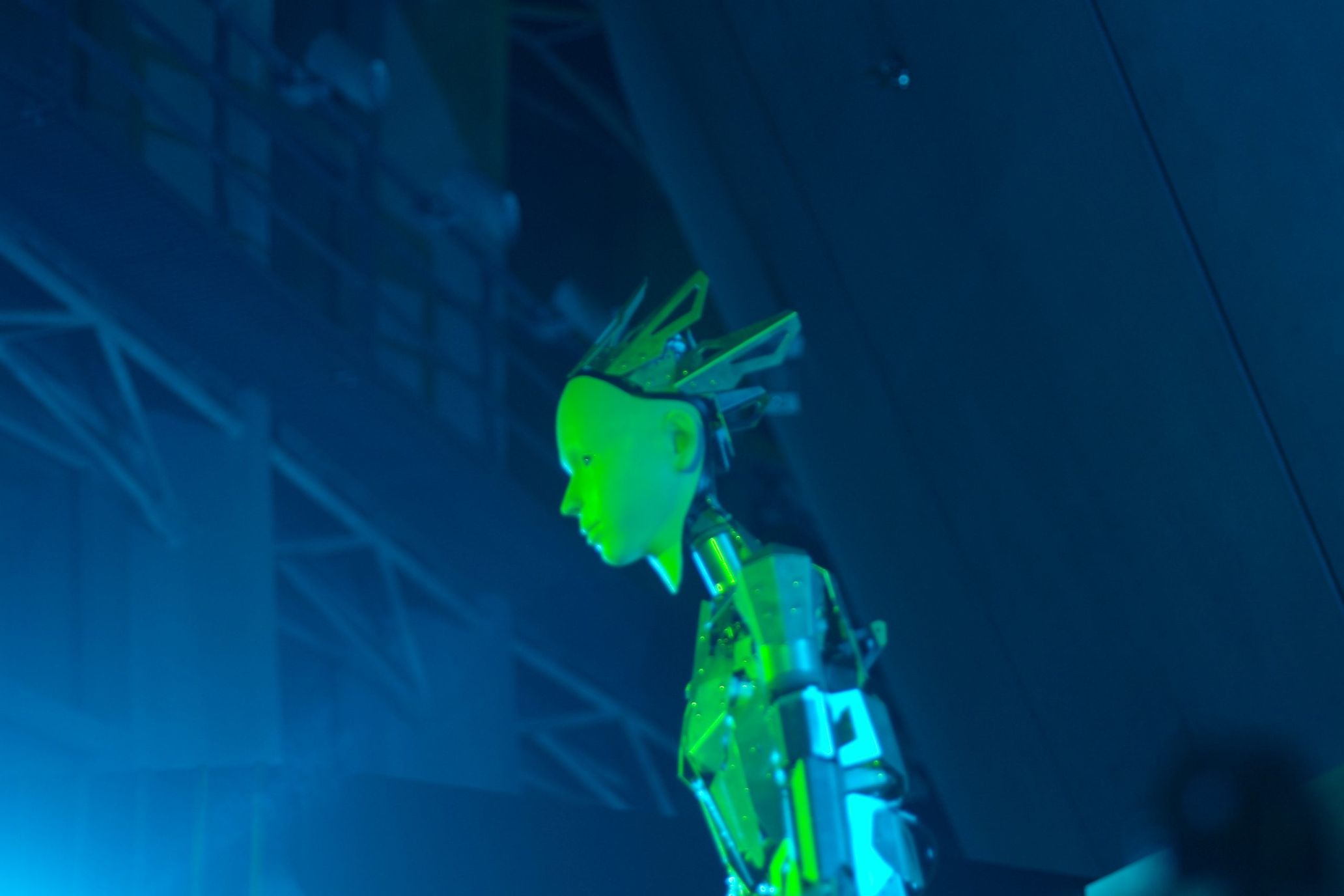
Sung to a poem by French novelist/poet Michel Houellebecq, this song is the main theme of Scary Beauty, Shibuya’s first Android Opera®︎, which premiered at Miraikan in 2018 (a prototype version was presented in Australia the previous year). An opera is the culmination of a comprehensive art form created by the European ethos. By introducing an “outsider” in the form of an android, Shibuya separates the tradition and the operatic format from its underlying anthropocentrism, and presents new possibilities for artistic expression and a vision that illuminates the future of society.
The awareness of these issues is a continuation of those presented in THE END, an “opera without humans” featuring the vocaloid Hatsune Miku, which premiered in 2013. The Android Opera®︎, however, employs an orchestra to penetrate deeper into the institutional framework of opera, and by creating a situation in which androids and humans resonate and coexist, I believe it achieves even greater expressive intensity and impact.
After the song ends, Orta begins to speak in English, with Shibuya’s piano playing in the background, and explains the importance of forwardism, which was met with surprise and commotion from the audience. To challenge oneself, to open up new paths, and to keep moving forward. Alter explains that this work leads to the enrichment of not only oneself but also others and society.
The future state of life and spirit as illustrated by androids
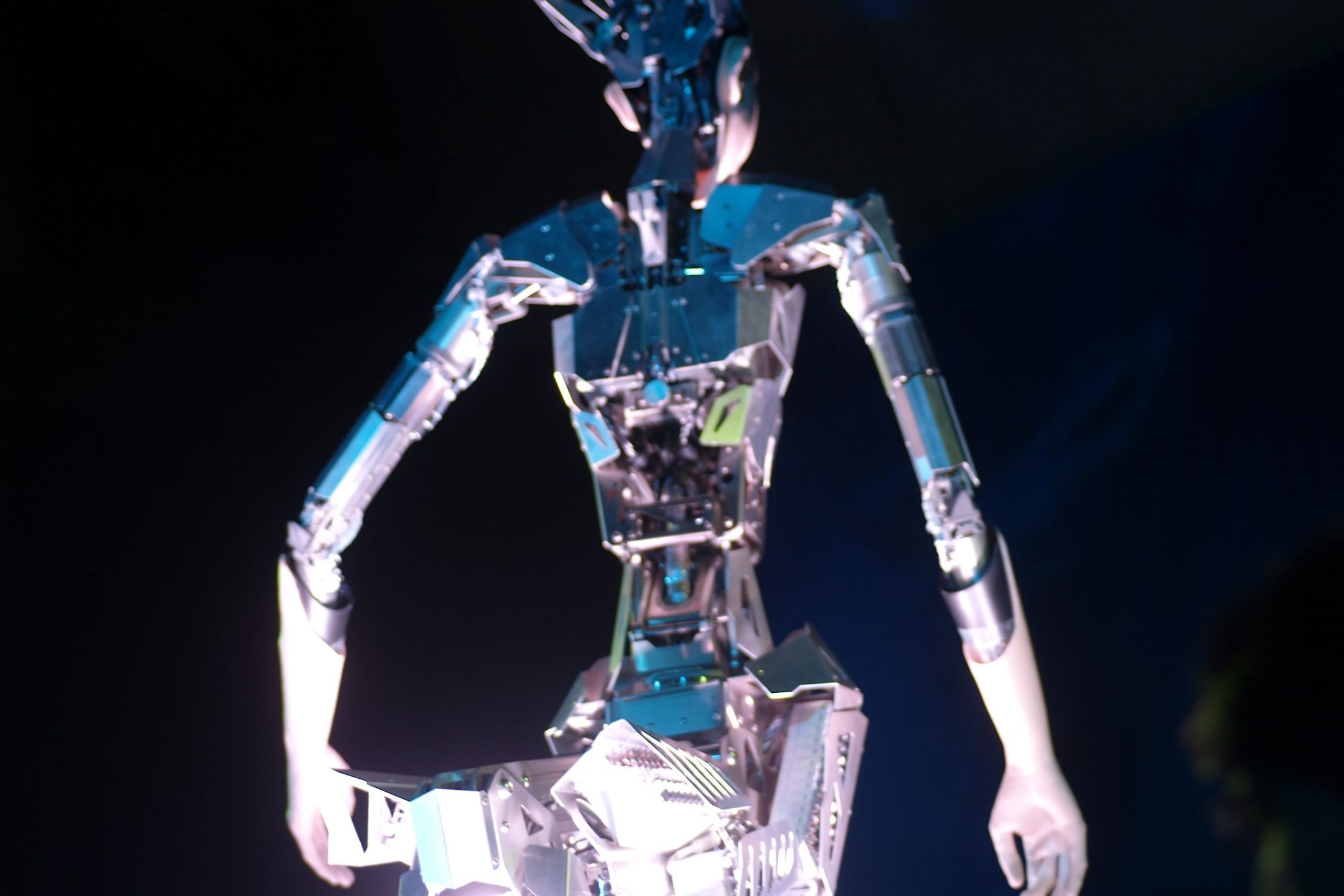
The band plays the song “The Decay of the Angel” next. The piano, orchestra, and sequencer blend together to form a strong, rich groove that envelops the venue. Around two minutes after the song begins, Alter’s vocals come in. The flowing melody line, which seems to soar to the heavens, invites the audience’s excitement.
“The Decay of the Angel” is a song that was created for the aforementioned Android Opera®︎ Scary Beauty. The song title derives from the title of the English translation of the fourth volume of Yukio Mishima’s final work, The Sea of Fertility. Through the events and dramas that unfold across time and space, we, the readers, are left to ponder about life and death, and the nature of human existence.
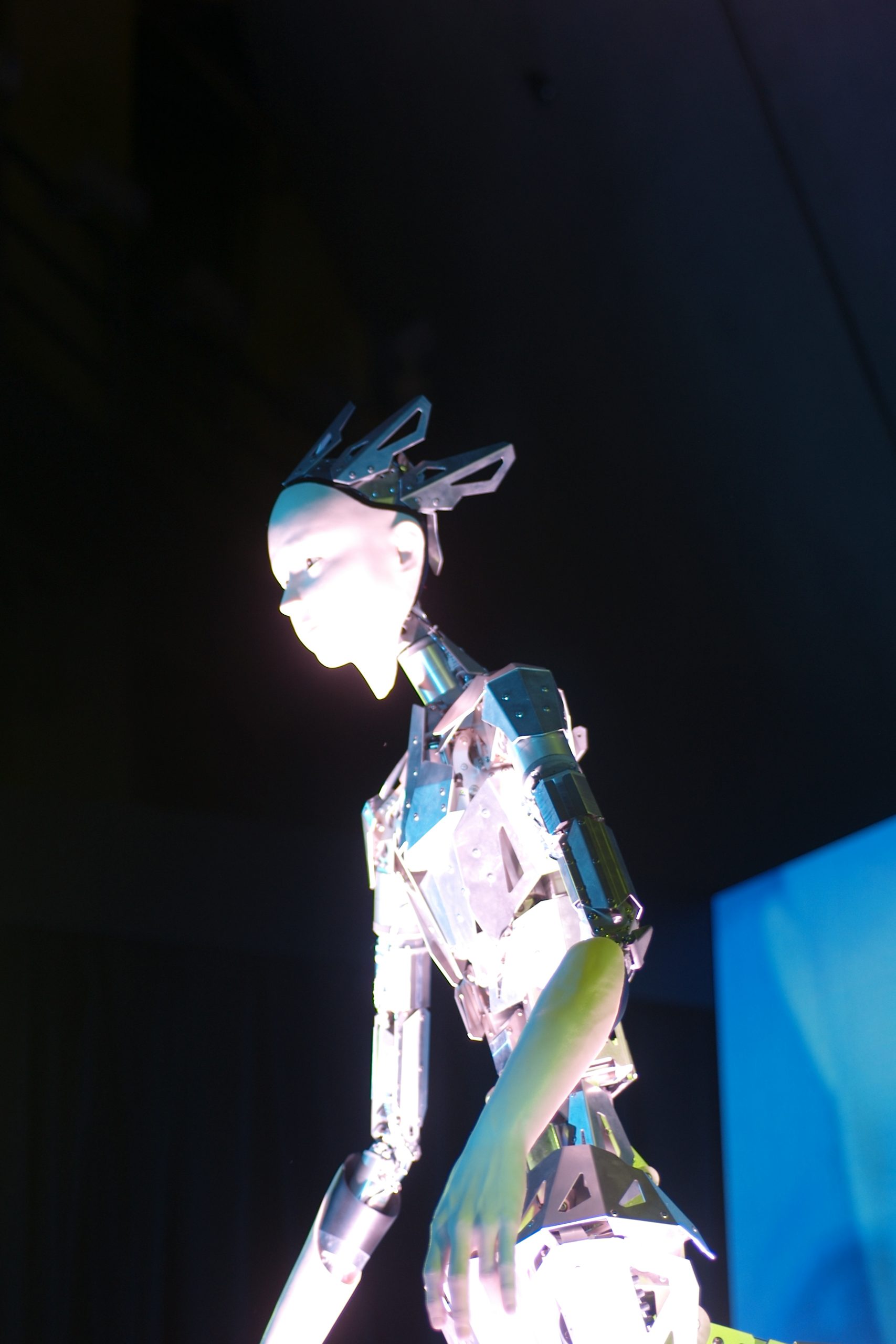
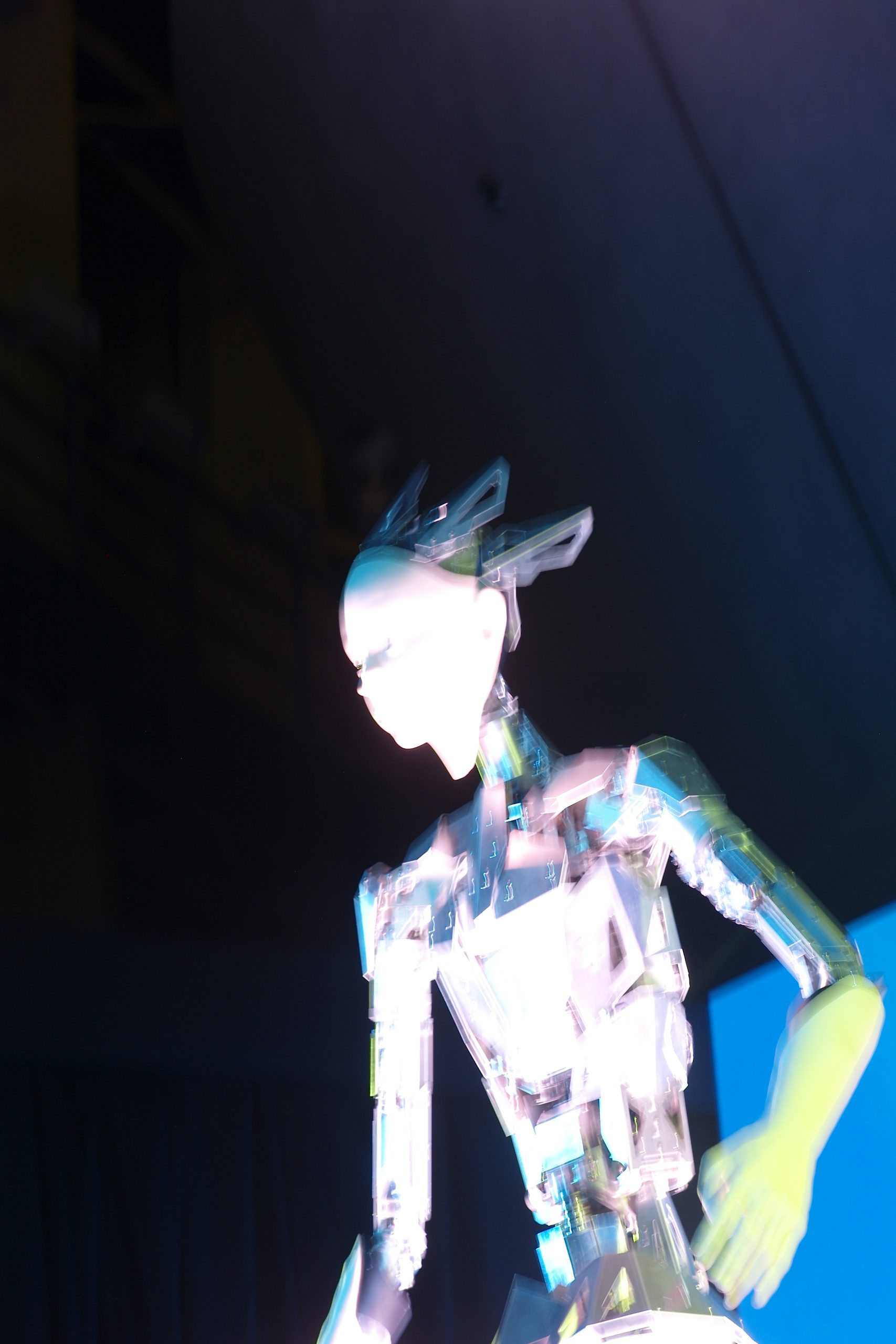
Needless to say, as an android, the Alter has no biological life. However, watching the Alter respond while singing to the sounds created by Shibuya and the orchestra gives an impression that our perception of life or a spirit may change in the future.
The session between Shibuya and the Alter that followed was also very thought-provoking. Instead of singing a predetermined part, the Alter improvised along with Shibuya’s improvised piano. The joint work of human and android, exploring and figuring out melodies together, conveys hope and possibilities for the future.
The Android Opera®︎, where humans and non-humans interact
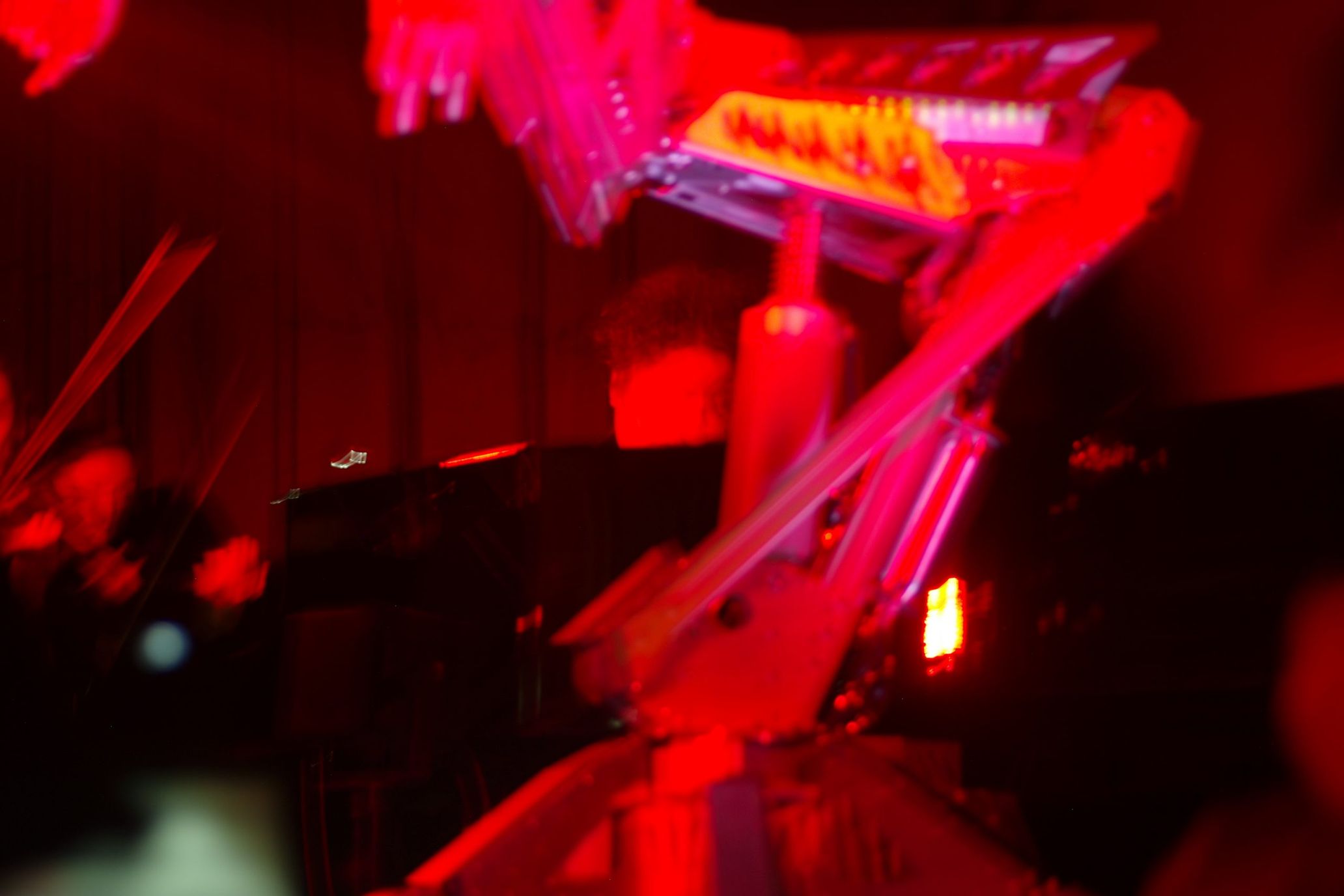
The last song of the day’s Android Opera®︎ is “Midnight Swan”. It was written as the main theme song for the film Midnight Swan (released in 2020, directed by Eiji Uchida, starring Tsuyoshi Kusanagi), and was the title track of album ATAK024 Midnight Swan (2020), Shibuya’s first piano solo album since ATAK015 for maria, released in 2011.
Laying atmospheric electronic sounds as a foundation, Shibuya’s delicate touch on the piano flows out as a massive kick that resonates to the very core of the body, is slowly struck, instantly changing the mood in the venue. The beautiful and emotional piano pieces, filled with sadness, hesitation, melancholia, and sensuality, are given deep, varied sounds and further dynamism by the orchestra, drawing the listener closer into its soundscape.
Like “The Decay of the Angel”, the lyrics sung by the Alter are the result of the joint work between Shibuya and collaborator Takashi Ikegami (Professor of Complex Systems and Artificial Life at the University of Tokyo) and Cypher, an AI lyric and text generator project. The Android Opera®︎ is shaped by the interaction of human and non-human creations and performances.
After the break, the kick switches to four-on-the-floor to heighten the sense of elation to a climax, and the Android Opera®︎ comes to a close with the song leaving a lingering aftertaste. Although it was not a long performance, lasting just over 20 minutes, it was an evening filled with intensity, enough to appreciate the possibilities and appeal of Shibuya’s newest form, the Android Opera®︎, which could be called the culmination of the current state of the art.
Even after Scary Beauty, Shibuya has continued to update his Android Opera®︎s with Super Angels (premiere: 2021, New National Theatre, Tokyo), which featured a collaboration between an Alter and an opera singer, a script by Masahiko Shimada, and a video created by WEiRDCORE, and with MIRROR (premiere: 2022, Dubai Expo), created with Buddhist music/Koyasan Shomyo and the NSO Symphony Orchestra from the UAE. We are excited to see what kind of performance he will surprise us with next, and what vision he will present to us in the future.
■ BMW “EXCLUSIVE VIP PARTY” Keiichiro Shibuya Android Opera®︎
Date: November 15th, 2022
Venue: The National Art Center, Tokyo
Staff:
Concept, Composition, Piano, Electronics: Keiichiro Shibuya
Vocal: Alter4
Orchestra: 45 musicians gathered specially for BMW’s party
Android Programming: Shintaro Imai
Sound: Yuki Suzuki
Visual: Kotaro Konishi
Lighting: Wataru Kawasaki, Go Ueda
Stage Manager: Kazuya Kushimoto, So Ozaki
Android Assistant: Akihide Kimura
Hair&Makeup: yoboon
Production Manager: Natsumi Matsumoto
Production: ATAK
Android – Alter4
Belonging to Osaka University of Arts – Art Science Department
Android and Music Science Laboratory (AMSL)
Design supervised by Hiroshi Ishiguro
Music supervised by Keiichiro Shibuya
Programming by Shintaro Imai
Pedestal design by Kazuyo Sejima & Associates
Translation Mimiko Goldstein
